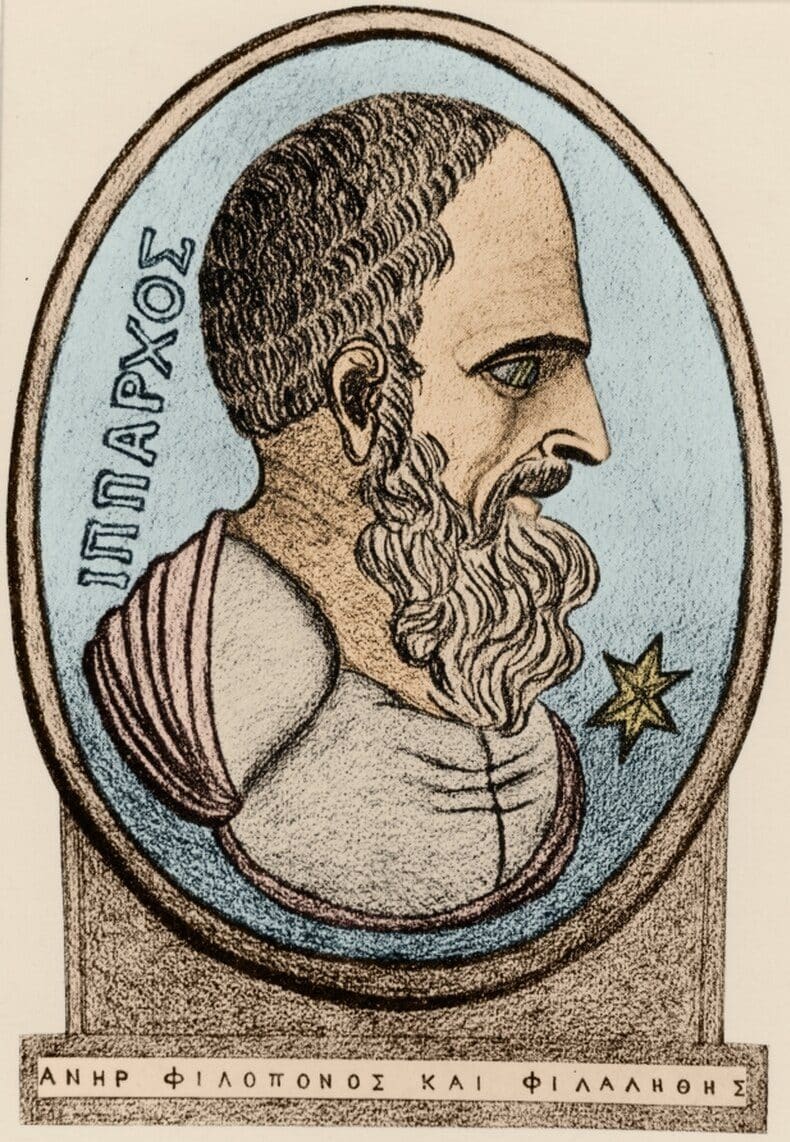Hiparchus, one of the most notable astronomers of Ancient Greece, lived around 190 to 120 BC. His life is shrouded in some mystery, but his contributions to astronomy left a lasting legacy that profoundly influenced the development of this science.
Born in Nicaea, a city in ancient Bithynia, Asia Minor (now part of Turkey), little is known about Hiparchus’ youth and education. He is widely recognized as the founder of spherical trigonometry, and his works address a wide range of topics, including astronomy, geometry, and trigonometry.
One of his most significant contributions was the creation of the first known star catalog in history. Compiled around 129 BC, this catalog contained information about the position and brightness of more than a thousand stars. Hiparchus classified these stars using an apparent magnitude system, which ranks the brightness of stars based on their appearance to an observer on Earth. This classification is still used by modern astronomers.
Additionally, Hiparchus is credited with inventing the celestial coordinate system, which divides the sky into lines of latitude and longitude to facilitate the location of celestial objects. He also developed techniques for calculating the distance between Earth and the Moon and accurately estimated the length of the solar year.
One of his most notable discoveries was the precession of the equinoxes, a slow cyclical movement of the equinox points along the ecliptic, which Hiparchus estimated with remarkable precision. This phenomenon is caused by the gravitational interaction between the Earth, the Moon, and the Sun and has important implications for astrology and astronomical navigation.
Hiparchus also pioneered the study of variations in star brightness. He identified about 850 stars that vary in brightness over time, now known as variable stars. His detailed observations of these stars significantly contributed to our understanding of stellar evolution.
While many of his original writings have been lost over the centuries, Hiparchus’ work has been preserved and widely disseminated by later scholars, including Ptolemy and Claudius. His systematic and rigorous approach to astronomical observation set a standard for scientific practice that influenced generations of astronomers.
In summary, Hiparchus is remembered as one of the greatest astronomers of antiquity, whose fundamental contributions to astronomy laid the groundwork for the future development of this science. His precision in observations, mathematical inventiveness, and lasting legacy solidify his position as a central figure in the history of astronomy and science overall.
